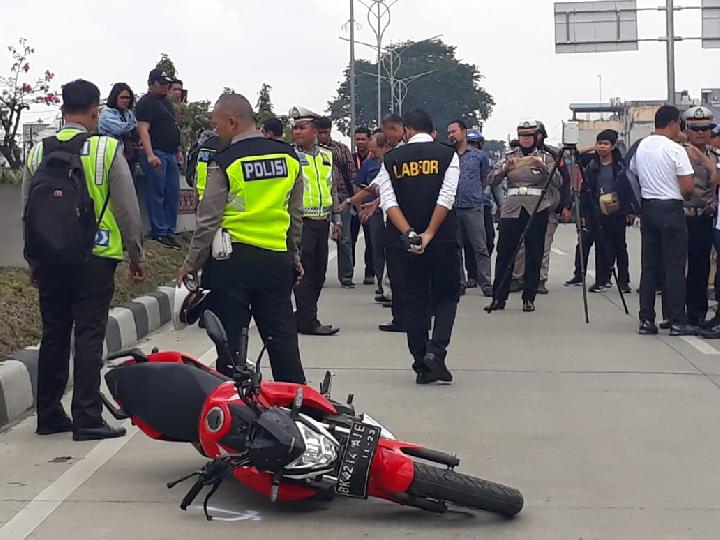The Shrinking Civic Space
Translator
Tempo.co
Editor
Laila Afifa
Jumat, 1 November 2019 11:26 WIB

TEMPO.CO, Jakarta - President Joko Widodo needs to think again if he wants to use New Order tactics in running the country. A policy that puts physical development above everything and uses a repressive approach to muzzle protest is an old recipe that should long ago have been discarded. The tendency in this direction is becoming more apparent in Jokowi’s administration.
The throwing of a Molotov cocktail at the Medan office of the Legal Aid Institute (LBH) a few weeks ago is the latest example. This attack, which set fire to the roof of the LBH office, was recorded by CCTV camera but is still a mystery. It is suspected that the Molotov cocktail attack was related to the activities of the institute, which has often been the target of protests from the government.
The LBH Medan has also been persistent in questioning the irregular aspects of the death of environmental activist Golfrid Siregar at the end of the beginning of October. The police claim that he had a road accident, but activists are convinced that he was murdered. The death of Golfrid is also suspected to be related to his advocacy activities. He had been working on a number of major cases, such as the illegal logging in Karo and the Batang Toru hydroelectricity plant.
In the case of the hydroelectric plant, he launched a legal challenge against a decision by the governor of North Sumatra granting an environmental permit for the project. This challenge was rejected by the court last March, but he did not give up. He also reported three North Sumatra police investigators to National Police Headquarters because they halted an investigation into the falsification of signatures of expert witnesses in the hydroelectric project.
Without a serious initiative from the police to investigate it, the mysteries of the death of Golfrid and the intimidation of the LBH Medan will only add to the lengthy list of violent incidents. According to the Commission for Missing People and Victims of Violence, there have been 114 examples of criminalization of activists during the administration of Jokowi. Some of them have even died, such as Poro Duka last year. He is suspected to have been shot while protesting against the excavation of land for the tourist project at Marosi Beach, West Sumba, East Nusa Tenggara.
An act of intimidation similar to that against the LBH Medan office occurred previously in West Nusa Tenggara, where the house of Indonesian Forum for the Environment director Murdani was set on fire at the end of January. Another ignored case is the death of a number of demonstrators during the demonstrations outside the House of Representatives and in a number of regions recently. And we still remember the acid attack on Corruption Eradication Commission investigator Novel Baswedan, which remains a mystery.
President Jokowi is giving the impression of ignoring these humanitarian tragedies and seems to care more about economic development. This type of leadership reminds us of the New Order with its many instances of violence and violations of human rights. For example, there was Marsinah, a factory worker in Porong, Sidoarjo, East Java who was kidnapped in 1993 and later found dead. There was also the murder of journalist Fuad Muhammad Syafruddin. The Suharto government even kidnapped dozens of pro-democracy activists in 1996.
This government should learn from the failure of the New Order, which glorified development and created mock political stability through repressive methods. In a more open system of politics like we have now, this old approach will only trigger public opposition. The economic development that President Jokowi dreams of will be flawed if it tramples on human dignity.
Read the Complete Story in this Week's Edition of Tempo English Magazine




















